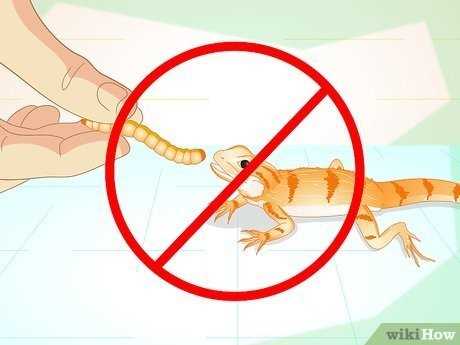Can Bearded Dragons Eat Mealworm Beetles?
The answer to the question of whether bearded dragons can eat mealworm beetles is yes, they can. In fact, mealworm beetles can be a beneficial addition to a bearded dragon’s diet.
Mealworm beetles are the adult form of mealworms and have a different nutritional composition compared to their larvae. They are a good source of protein and fat, which are essential for the growth and health of bearded dragons.
Feeding mealworm beetles to bearded dragons can provide variety in their diet and help keep them interested in their food. It can also help satisfy their natural instinct to hunt, as mealworm beetles are more active and mobile compared to mealworm larvae.
Additionally, it is crucial to source mealworm beetles from reliable and reputable suppliers to avoid any potential risks of contamination or pesticide exposure. Feeding wild-caught mealworm beetles is not recommended.
The Nutritional Value of Mealworm Beetles for Bearded Dragons
Mealworm beetles are the adult stage of the mealworm larvae and are rich in protein, making them a great source of nutrition for bearded dragons. Protein is essential for muscle development, growth, and overall health in reptiles. It also helps in the production of eggs in breeding females.
In addition to protein, mealworm beetles also contain fat. While fat is often seen as a negative nutrient, it is necessary for providing energy to bearded dragons. Fat helps in maintaining a healthy weight and provides a source of fuel for their daily activities.
Mealworm beetles also provide essential vitamins and minerals that are important for the overall well-being of bearded dragons. These include calcium, phosphorus, and potassium. Calcium is crucial for bone health and the prevention of metabolic bone disease, a common ailment in reptiles. Phosphorus plays a role in energy metabolism, while potassium helps maintain proper fluid balance in the body.
| Nutrient | Amount per 100g of Mealworm Beetles |
|---|---|
| Protein | 20g |
| Fat | 9g |
| Calcium | 200mg |
| Phosphorus | 250mg |
| Potassium | 400mg |
Potential Risks and Considerations
Gut Impaction:

One of the main concerns with feeding mealworm beetles to bearded dragons is the risk of gut impaction. Mealworm beetles have a hard exoskeleton that can be difficult for bearded dragons to digest. If a bearded dragon eats too many mealworm beetles or if the beetles are too large, they may cause blockages in the digestive system, leading to serious health problems.
Nutritional Imbalance:
Pesticide Contamination:
Another concern with feeding mealworm beetles to bearded dragons is the potential for pesticide contamination. Mealworms are often raised commercially and may be treated with pesticides to prevent infestations. These pesticides could be harmful to the bearded dragon if ingested. It is essential to source mealworm beetles from a trusted supplier to minimize the risk of pesticide exposure.
Allergies and Sensitivities:
Bearded dragons, like humans, can develop allergies or sensitivities to certain foods. Some bearded dragons may have adverse reactions when consuming mealworm beetles, such as gastrointestinal upset or skin irritations. It is recommended to introduce mealworm beetles gradually and monitor the bearded dragon’s response to ensure they do not have any negative reactions.
Size and Age of the Bearded Dragon:
The size and age of the bearded dragon should also be considered when feeding mealworm beetles. Younger or smaller bearded dragons may have a harder time digesting mealworm beetles due to the hardness of their exoskeletons. It is best to offer smaller, gut-loaded mealworm beetles to younger dragons, while larger, well-fed beetles can be given to adult bearded dragons.
Conclusion:

I’m Lena Adams—a product of an unconventional upbringing in the African wilderness. My father, a daring explorer of African wildlife, sparked my fascination with reptiles, a passion that intertwined with the tragic loss of my mother during an expedition, leaving an indelible mark on my life. Driven to understand the creatures that captivated my parents, I embarked on my journey, sharing insights about reptiles, frogs, and lizards on my website. Through my explorations and conservation efforts, I honour my family’s legacy while seeking connections—to the creatures, nature, and the mother whose presence I yearn to understand.
